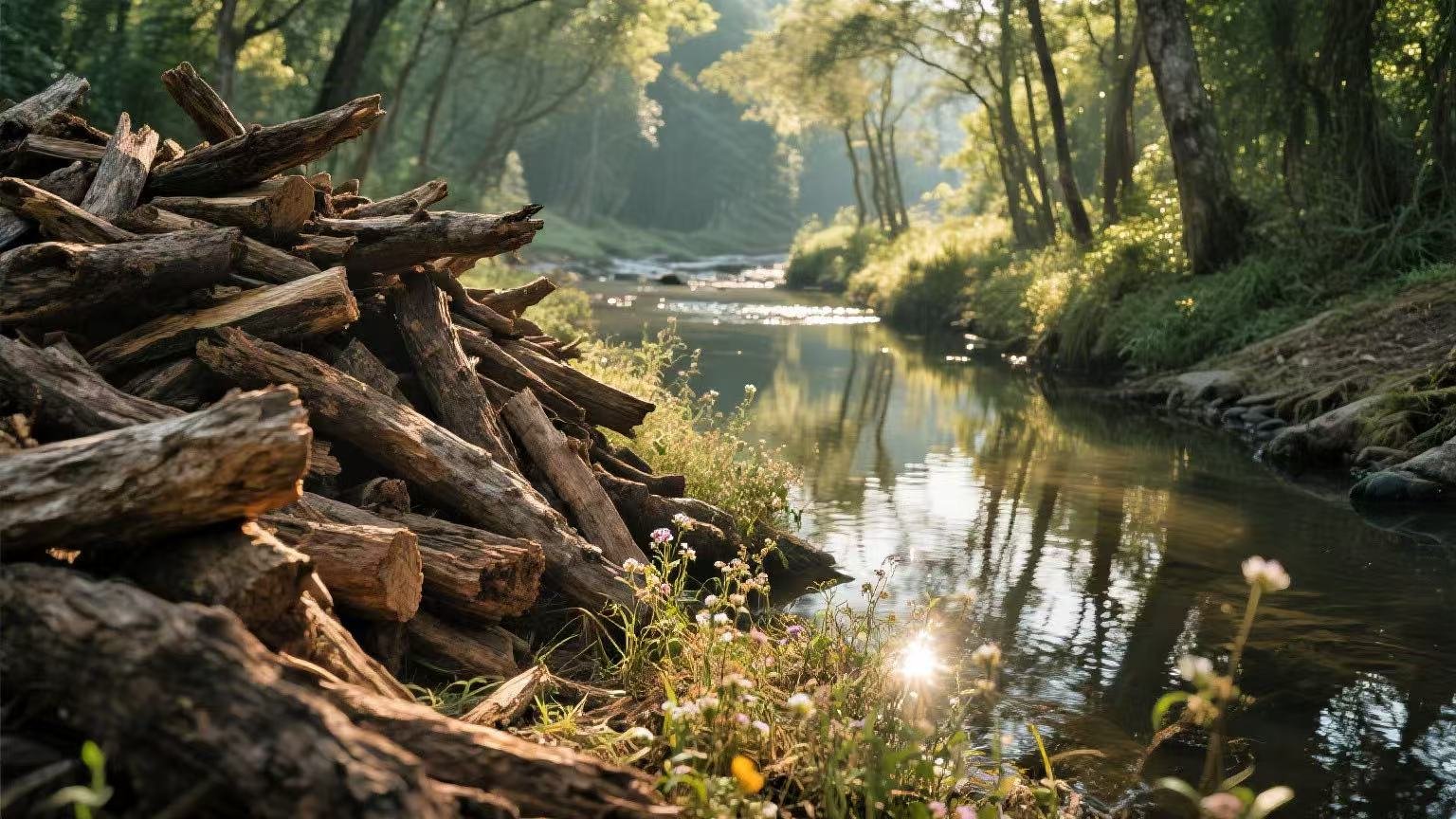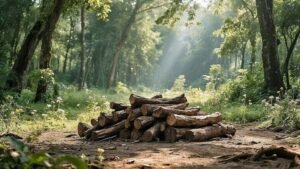What is Agarwood?
Agarwood (also known as Oud or Aloeswood) isn’t ordinary timber. It’s a rare, fragrant resin-saturated wood formed when specific Aquilaria trees suffer injury. Revered as “Wood of the Gods,” it releases an ethereal aroma when heated – a complex symphony of honeyed sweetness, woody depth, medicinal spice, and cool balsamic undertones. As the crown jewel of ancient luxury scents (alongside sandalwood, ambergris, and musk), it bridges perfumery, medicine, and spiritual traditions across Asia and the Middle East.
The Miracle of Formation: How Pain Becomes Perfume
Agarwood’s creation is nature’s alchemy:
- The Tree: Only trees of the Aquilaria genus (e.g., A. sinensis, A. malaccensis) can produce agarwood.
- The Wound: Lightning strikes, insect infestations, fungal attacks, or human cuts damage the tree.
- The Defense: To seal its injury, the tree secretes a dark, aromatic resin that saturates the heartwood.
- The Transformation: Over 20–100+ years, this resin oxidizes and matures, turning pale wood into dense, oil-rich agarwood.
Crucial Insight:
- Only 7–10% of wild Aquilaria trees naturally develop agarwood.
- Higher resin concentration = richer fragrance = greater value.
Classifying Agarwood: Nature’s Fragrant Palette
1. By Origin
| Type | Key Traits |
|---|---|
| Wild Agarwood | • Formed naturally in forests • Complex, evolving scent profile • Examples: Vietnamese Kyara, Chinese Qinan |
| Cultivated Agarwood | • Artificially wounded/inoculated • Harvested in 5–10 years • Simpler aroma, affordable |
2. By Harvest Method
| Type | Formation Process | Scent Profile |
|---|---|---|
| Sheng Jie | Harvested from living trees | Brighter, greener, more volatile |
| Shu Jie | Collected from naturally decayed trees | Deeper, smoother, mellower |
3. By Resin Density
| Grade | Density Test | Resin Content | Quality |
|---|---|---|---|
| Sinking Grade | Sinks in water | >80% | Premium (A+++) |
| Semi-Sinking | Partially submerged | 40–80% | High (A+) |
| Floating Grade | Floats on water | <40% | Standard (B) |
4. By Wound Type
| Form | Injury Cause | Characteristics |
|---|---|---|
| Chong Lou | Insect boreholes | Honeycomb texture; crisp, sweet aroma |
| Ban Tou | Broken branches/trunk | Block-shaped; rich, smoky scent |
Why Agarwood Captivates the World
“Agarwood is the forest’s poetry – written in resin, whispered in smoke.”
This “liquid gold of forests” embodies a paradox: beauty born from brokenness. From Buddhist temples to Parisian perfumeries, its haunting scent remains a testament to nature’s power to transform trauma into transcendent treasure. As demand surges, sustainable cultivation and ethical sourcing become vital to preserve this wounded wonder.
(For enthusiasts: Explore our next blog on how to distinguish genuine agarwood from fakes!)

